During Volkswagen’s Power Day event, Volkwagen executives Thomas Schmall and Elke explained how they believe that by 2022 all MEB vehicles will be capable of not only to taking energy from the grid but also to giving it back. According to Volkswagen, electric cars will soon become a key factor in the energy grid system thanks to the renewable energy they save. The German automaker believes that with this, proper energy management, and intelligent storage systems, charging will one day be free.
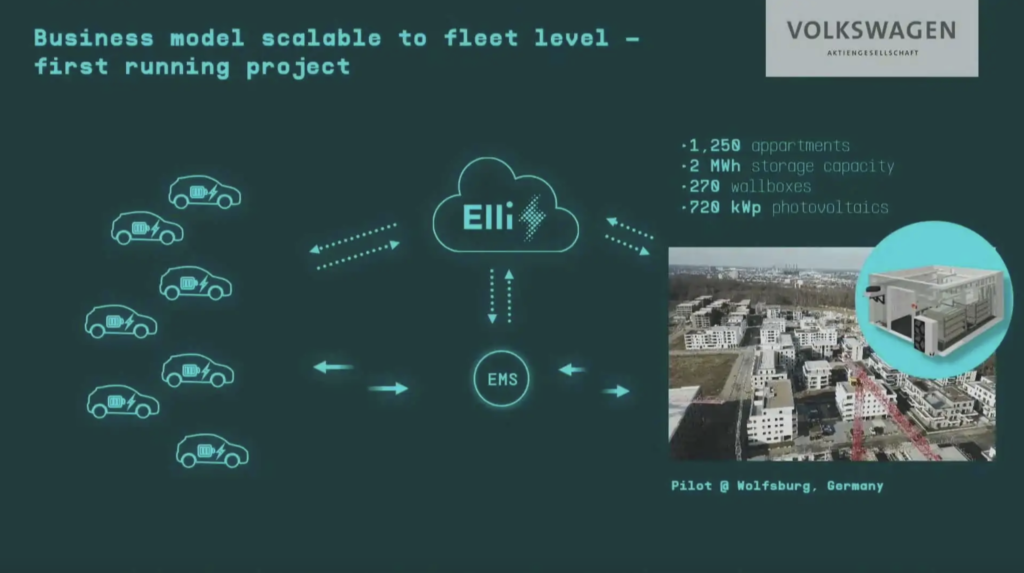
Volkswagen is currently testing its pilot program for this in Wolfsburg. The program consists of 1,250 apartments, 2 MWh in storage capacity, 270 bidirectional wallboxes, and 720 kWp in photovoltaic panels. The goal is to store the electric energy produced by photovoltaic panels and re-use in the houses and grids when the car is not used. That is possible because when parked, EVs can store energy that in other cases would just be lost.
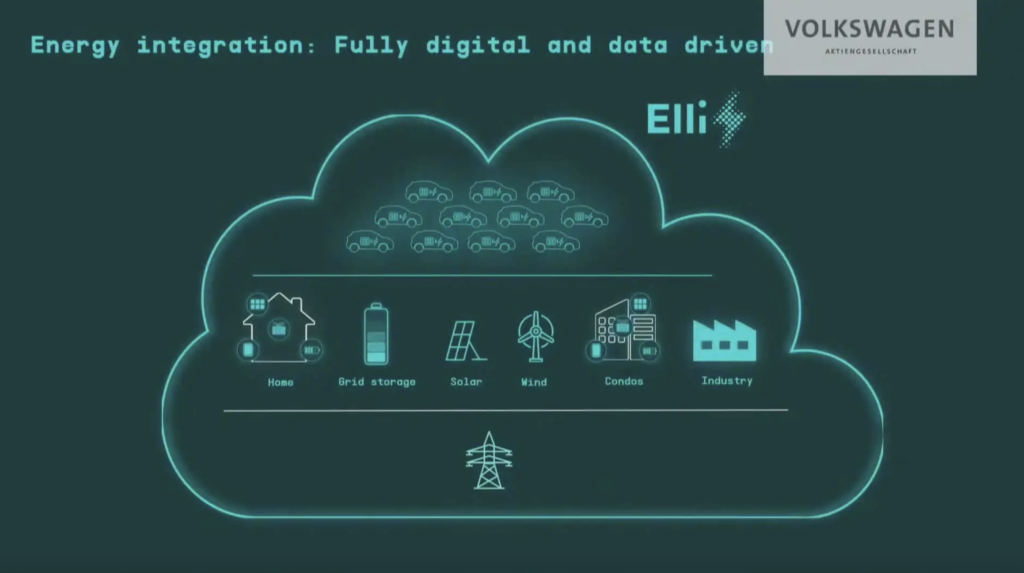
According to Volkswagen Group Component’s head of charging and energy, Elke Temme, Germany loses 6.5 TWh of renewable energy per year due to the fact that the energy that wind and solar power generate is not used by the grid entirely when it is generated. A massive amount of energy that could allow 2.7 million electric cars to drive for an entire year if that energy was managed better.
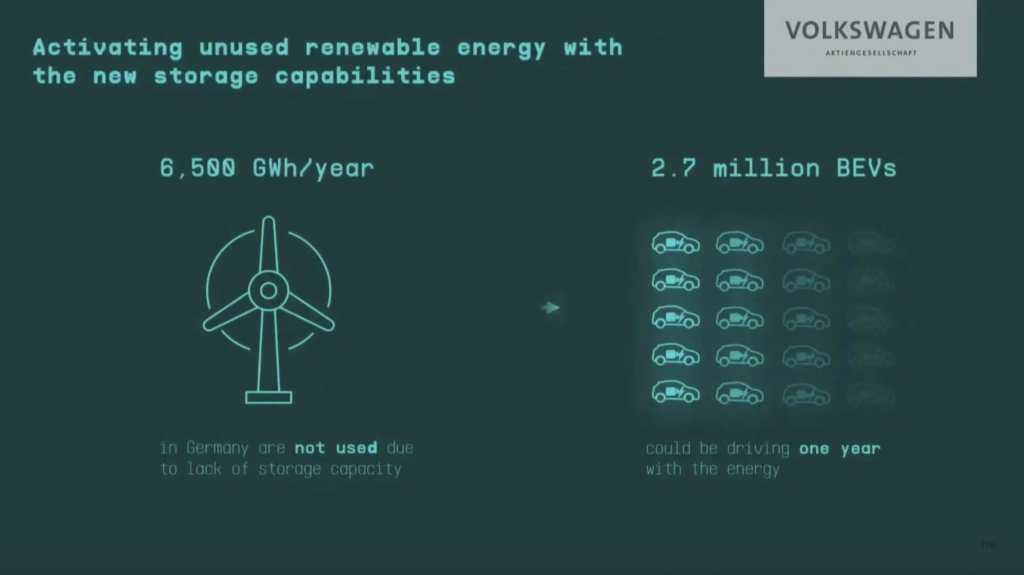
Temme presented an example suggesting that the ID.3 with the 77 kWh battery pack could power a house for five days while still being able to commute without charging. These statements were based of estimated daily trips of 40 km (25 miles) per day, giving us a total of 200 km (125 miles) for the five day span.
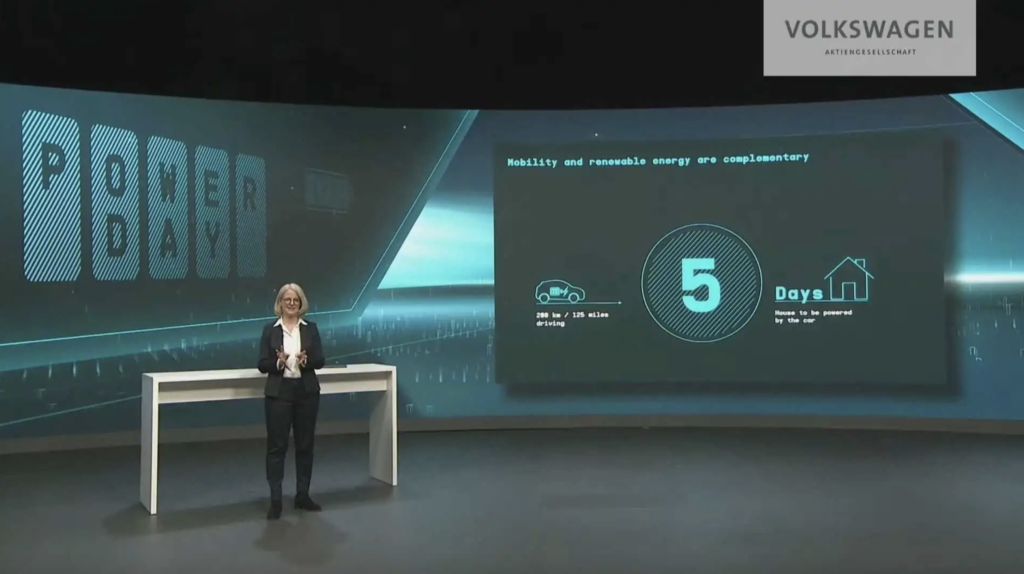
Volkswagen’s cloud energy management software, Elli, will be a key player in making the German automaker’s plans come to fruition. Elli stands for Electric Life and operates in Munich, Berlin, and Wolfsburg. It names all the electrical products from the automaker (i.e. wall chargers, charging robots, etc).
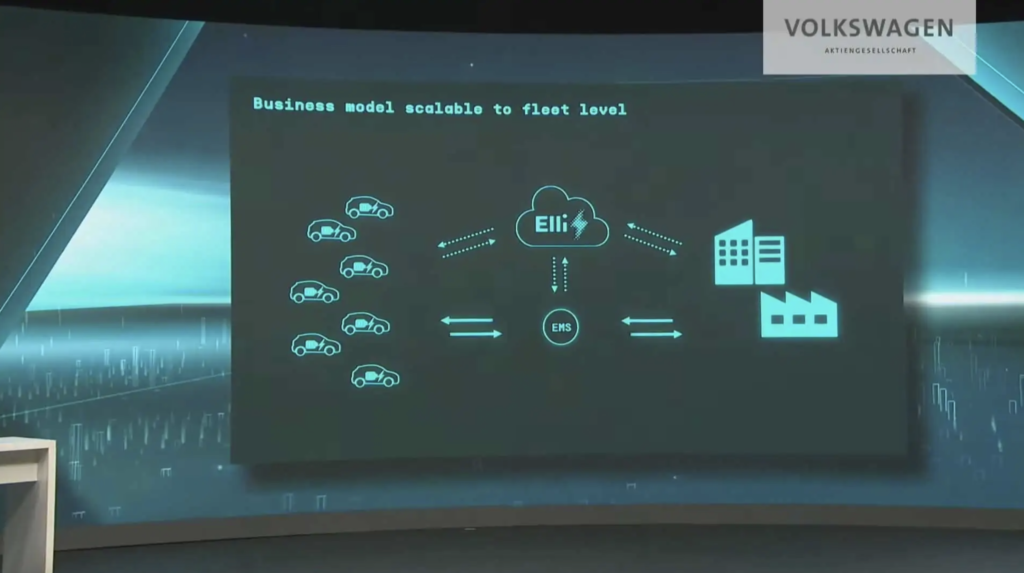
Once the batteries have lived their lifespan in a vehicle and are no longer usable, Volkswagen will then apply them in grid storage and DC charging stations, hence why they are suggesting charging will one day be free. An example was presented with according to the automaker has a storage capacity of 150 kWh:
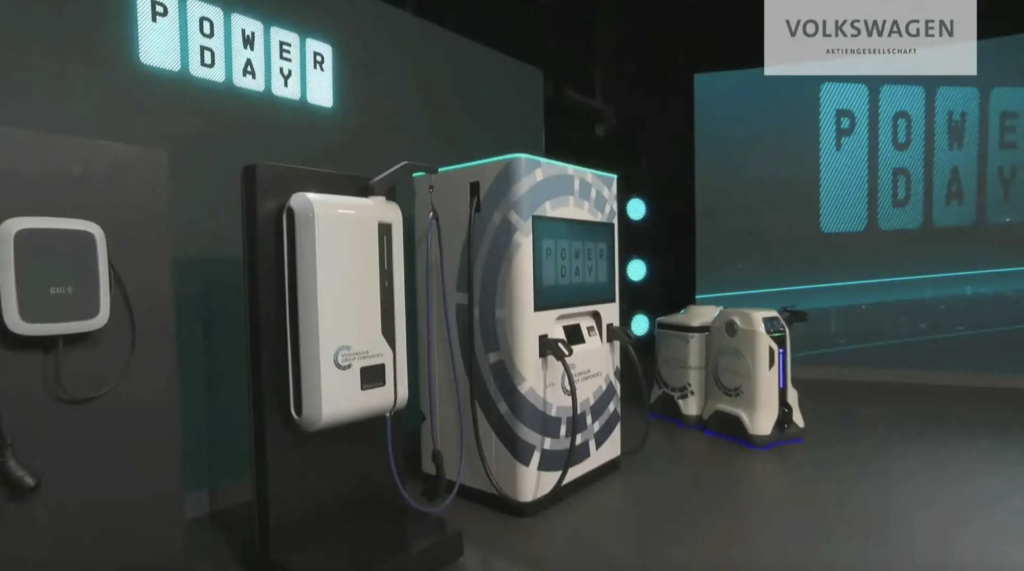
In the program, EV owners will receive money for selling energy back to the grid. Depending on how this plays out, owners could even make a little bit of income by allowing their cars to work as power banks when the grid needs to store energy that would otherwise be lost when being produced by wind and solar sources.
This all sounds fine and dandy except for the fact that this will probably shorten the battery packs’ lifecycle. If this is the case, its pretty likely that Volkswagen is already construing a plan to incentivize being a part of the grid structure, aside from the free electric energy that is.

